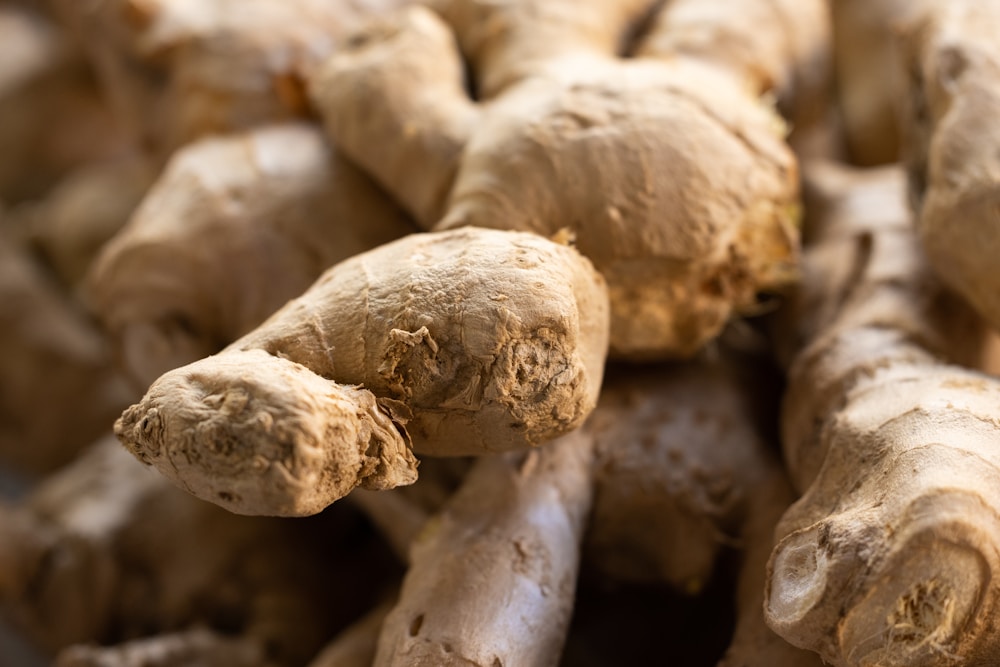Introduction: Nature’s Powerhouses for Wellness
Did you know that adding herbs and spices to your meals does more than enhance flavor? These natural wonders are packed with antioxidants, anti-inflammatory compounds, and essential nutrients that promote overall health. From aiding digestion to boosting immunity, healthy herbs and spices offer a variety of benefits that can significantly improve your well-being.
In this article, we’ll explore 10 powerful herbs and spices, their remarkable health benefits, and how you can incorporate them into your daily routine.
1. Turmeric: The Golden Healer
Health Benefits of Turmeric
Turmeric is widely known for its active compound, curcumin, which boasts potent anti-inflammatory and antioxidant properties. It helps reduce inflammation, making it beneficial for conditions like arthritis and inflammatory bowel diseases. Additionally, turmeric may enhance brain function and lower the risk of heart disease.
How to Use Turmeric
- Add turmeric powder to smoothies, soups, or teas.
- Use it as a spice rub for roasted vegetables or meats.
- Pair it with black pepper to enhance curcumin absorption.
FUN FACT:
Did you know that curcumin, the active compound in turmeric, is poorly absorbed by the body on its own? However, pairing turmeric with black pepper can increase curcumin absorption by up to 2,000% due to piperine, a compound in black pepper. So, always add a dash of black pepper when using turmeric for maximum benefits!
2. Ginger: The Digestive Aid

Health Benefits of Ginger
Ginger contains gingerol, a bioactive compound with anti-inflammatory and antioxidant effects. It aids digestion, reduces nausea, and may alleviate menstrual pain and muscle soreness. Ginger also supports heart health by lowering blood sugar levels.
How to Use Ginger
- Add fresh ginger to hot water for a soothing tea.
- Incorporate grated ginger into stir-fries, soups, or baked goods.
- Use ginger powder in smoothies or spice blends.
Related Link: Mayo Clinic – Ginger and Digestion
Health Tip:
For better digestion, try drinking a cup of ginger tea about 30 minutes before meals. This can help stimulate digestive enzymes, reduce bloating, and prevent indigestion. Plus, it’s a soothing way to support gut health!
3. Cinnamon: The Blood Sugar Regulator
Health Benefits of Cinnamon
Cinnamon is celebrated for its ability to lower blood sugar levels and improve insulin sensitivity. It also has antimicrobial properties, making it effective against infections. Additionally, it may reduce inflammation and lower the risk of heart disease.
How to Use Cinnamon
- Sprinkle cinnamon on oatmeal, yogurt, or coffee.
- Add it to baked goods and desserts.
- Use it in savory dishes like stews or curries.
Related Link: WebMD – Cinnamon for Blood Sugar Control
Fun Fact:
Did you know that just half a teaspoon of cinnamon daily can help lower blood sugar levels in people with type 2 diabetes? Plus, cinnamon may also reduce LDL (bad) cholesterol, promoting better heart health!
4. Garlic: The Immune Booster
Health Benefits of Garlic
Garlic contains allicin, which has antibacterial, antiviral, and antifungal properties. It strengthens the immune system, lowers blood pressure, and may reduce cholesterol levels. Garlic is also linked to a lower risk of heart disease.
How to Use Garlic
- Add raw or roasted garlic to soups, sauces, and marinades.
- Use it in salad dressings or dips.
- Crush garlic and let it sit for 10 minutes to enhance its medicinal properties.
Fun Fact:
Did you know that crushing garlic before cooking activates its allicin content, the compound responsible for its powerful health benefits? Letting crushed garlic sit for 10-15 minutes before heating helps preserve more of its medicinal properties!

5. Rosemary: The Memory Enhancer
Health Benefits of Rosemary
Rosemary is rich in antioxidants and anti-inflammatory compounds. It may enhance memory and cognitive function by improving blood circulation to the brain. Additionally, it supports digestion and may reduce inflammation.
How to Use Rosemary
- Sprinkle fresh rosemary on roasted potatoes or vegetables.
- Infuse olive oil with rosemary for added flavor.
- Use it to season poultry, lamb, or fish dishes.
Related Link: NIH – Cognitive Benefits of Rosemary
Fun Fact:
Did you know that the aroma of rosemary alone can boost memory and mental alertness? Inhaling rosemary essential oil may improve cognitive performance and sharpen concentration—making it a perfect herb for study or work sessions!
6. Basil: The Anti-Inflammatory Herb
Health Benefits of Basil
Basil contains eugenol, which has anti-inflammatory properties. It may help reduce oxidative stress, lower blood sugar levels, and support liver function. Basil also has antimicrobial effects, making it beneficial for oral health.
How to Use Basil
- Add fresh basil to salads, pasta, and pizzas.
- Use it in homemade pesto sauce.
- Brew basil tea for a refreshing drink.
Related Link: Medical News Today – Benefits of Basil
Fun Fact:
Did you know that basil leaves contain natural adaptogenic properties? This means they help the body combat stress by regulating cortisol levels. Adding fresh basil to your meals may promote relaxation and reduce anxiety!
7. Oregano: The Antimicrobial Herb

Health Benefits of Oregano
Oregano contains carvacrol and thymol, two compounds with antimicrobial and antifungal properties. It may help fight bacterial infections and reduce inflammation. Oregano also supports respiratory health.
How to Use Oregano
- Sprinkle dried oregano on pizzas, salads, or pasta.
- Use it to season meats and vegetables.
- Add fresh oregano to homemade sauces.
Fun Fact:
Did you know that oregano oil is so potent that it can act as a natural antibiotic? Its active compound, carvacrol, has been shown to combat harmful bacteria like E. coli and Staphylococcus, making it a powerful addition to your natural medicine cabinet!
8. Cayenne Pepper: The Metabolism Booster
Health Benefits of Cayenne Pepper
Cayenne pepper contains capsaicin, a compound known to boost metabolism and promote fat burning. It may also reduce appetite, lower blood pressure, and improve digestion.
How to Use Cayenne Pepper
- Sprinkle it on eggs, soups, or stews.
- Add it to marinades and spice blends.
- Use it in homemade hot sauces.
Health Tip:
To boost your metabolism, add a pinch of cayenne pepper to lemon water in the morning. This spicy combo can kickstart fat burning and improve digestion throughout the day!
9. Thyme: The Respiratory Supporter
Health Benefits of Thyme
Thyme is packed with antioxidants and essential oils, including thymol, which may help relieve coughs and congestion. It also has antimicrobial properties and supports digestion.
How to Use Thyme
- Use fresh or dried thyme in soups and stews.
- Infuse thyme into oils or vinegar for added flavor.
- Brew thyme tea to relieve cough symptoms.
Related Link: WebMD – Benefits of Thyme
Health Tip:
To boost your metabolism, add a pinch of cayenne pepper to lemon water in the morning. This spicy combo can kickstart fat burnTo ease a cough or sore throat, brew a cup of thyme tea by steeping 1-2 teaspoons of dried thyme in hot water for 10 minutes. Adding a teaspoon of honey can enhance its soothing and antimicrobial effects!ing and improve digestion throughout the day!
10. Peppermint: The Digestive Soother

Health Benefits of Peppermint
Peppermint contains menthol, which has a calming effect on the digestive tract. It can help relieve bloating, indigestion, and irritable bowel syndrome (IBS) symptoms. Peppermint may also alleviate headaches and nasal congestion.
How to Use Peppermint
- Brew peppermint tea for digestive relief.
- Add fresh peppermint leaves to salads or fruit bowls.
- Use peppermint oil for aromatherapy or massage.
Fun Fact:
Did you know that peppermint oil can act as a natural muscle relaxant? Its cooling effect helps soothe sore muscles and reduce tension, making it a popular remedy for post-workout recovery or tension headaches!
Final Thoughts: Spice Up Your Health
Incorporating these healthy herbs and spices into your diet is a flavorful and natural way to boost your well-being. Whether you’re enhancing your dishes with garlic or enjoying a cup of ginger tea, these natural ingredients offer a wide range of health benefits.
Tip: When using herbs and spices for their health benefits, opt for fresh or high-quality dried forms to maximize their potency.
Explore More:
- 35 Diabetic-Friendly Recipes – Add delicious and healthy spice-infused meals to your diabetic-friendly diet.
- Share your favorite ways to use herbs and spices in the comments below!








